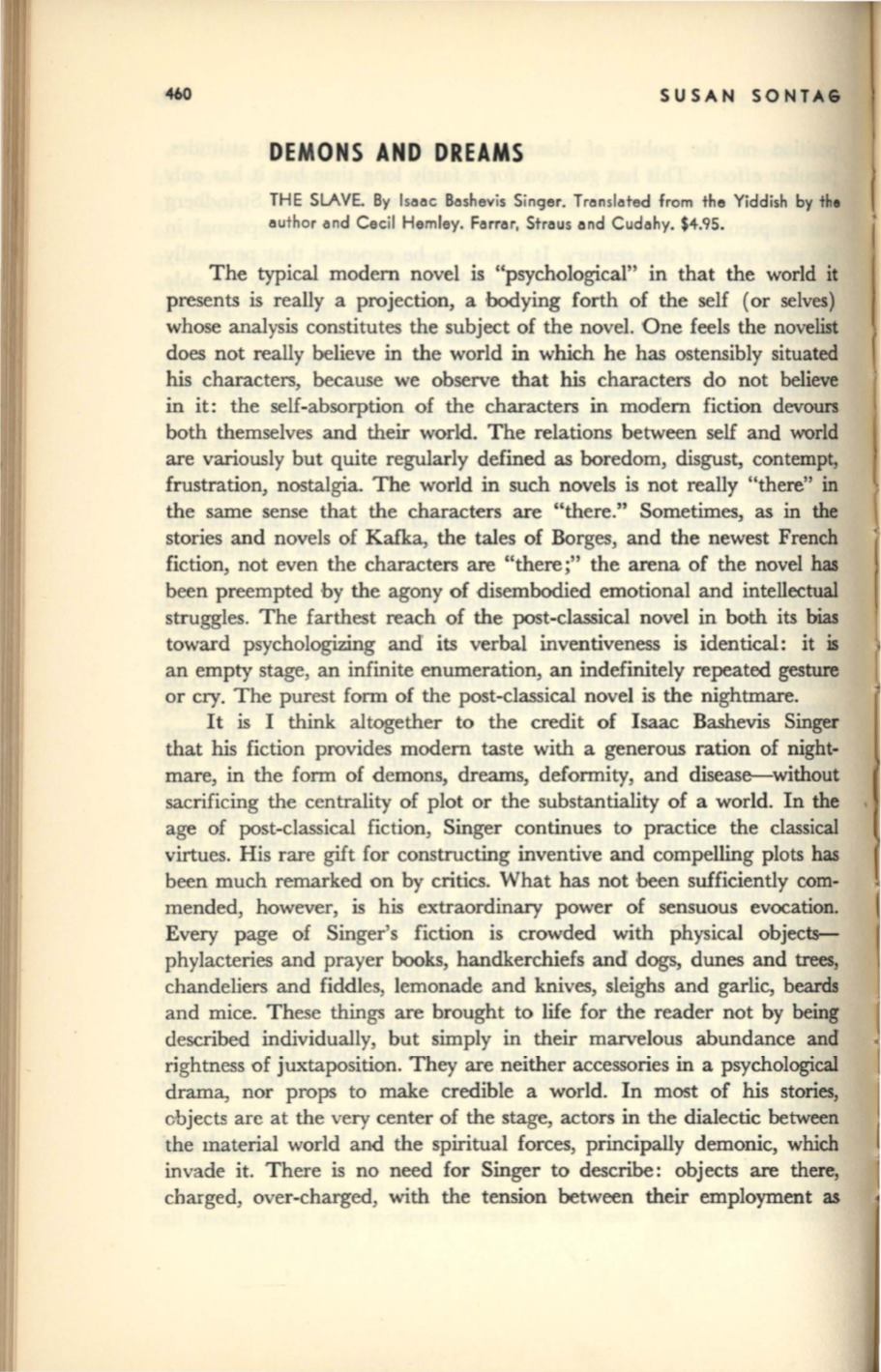
SUSAN SONTA6
DEMONS AND DREAMS
THE SLAVE. By Iseec Beshevis Singer. Trensleted from the Yiddish by the
euthor end Cecil Hemley. Ferrer, Streus and Cudehy. $4.95.
The typical modern novel is "psychological" in that the world it
presents is really a projection, a bodying forth of the self (or selves)
whose analysis constitutes the subject of the novel. One feels the novelist
does not really believe in the world in which he has ostensibly situated
his characters, because we observe that
his
characters do not believe
in it: the self-absorption of the characters in mod'ern fiction devours
both themselves and their world. The relations between self and world
are variously but quite regularly defined as boredom, disgust, contempt,
frustration, nostalgia. The world in such novels is not really "there"
in
the same sense that the characters are "there." Sometimes, as in the
stories and novels of Kafka, the tales of Borges, and the newest French
fiction, not even the characters are "there;" the arena of the novel has
been preempted by the agony of disembodied emotional and intellectual
struggles. The farthest reach of the post-classical novel in both its
bias
toward psychologizing and its verbal inventiveness is identical: it
is
an empty stage, an infinite enumeration, an indefinitely repeated gesture
or cry. The purest form of the post-classical novel is the nightmare.
It is I think altogether to the credit of Isaac Bashevis Singer
that his fiction provides modern taste with a generous ration of night–
mare, in the form of demons, dreams, deformity, and disease-without
sacrificing the centrality of plot or the substantiality of a world. In the
age of post-classical fiction, Singer continues to practice the classical
virtues. His rare gift for constructing inventive and compelling plots has
been much remarked on by critics. What has not 'been sufficiently com–
mended, however, is his extraordinary power of sensuous evocation.
Every page of Singer's fiction is crowded with physical objects–
phylacteries and prayer books, handkerchiefs and' dogs, dunes and trees,
chandeliers and fiddles, lemonade and knives, sleighs and garlic, beards
and mice. These things are brought to life for the reader not by being
described individually, but simply in their marvelous abundance and
rightness of juxtaposition. They are neither accessories in a psychological
drama, nor props to make credible a world. In most of his stories,
objects are at the very center of the stage, actors in the dialectic between
the material world and the spiritual forces, principally demonic, which
invade it. There is no need for Singer to describe: objects are there,
charged, over-charged, with the tension between their employment as


